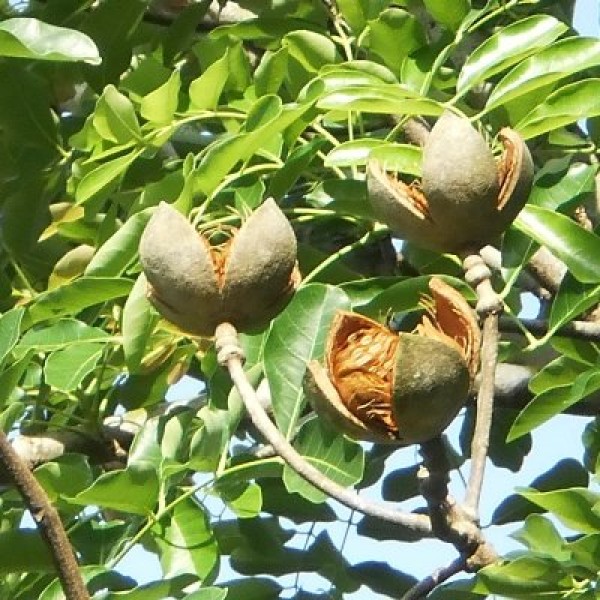This image is for reference purpose only, Photo May Slightly Different From Actual Item in Terms of Color Due to the Lighting During Photo Shooting or the Monitor's Display.
Khaya Senegalensis
The wood is valued for carpentry, joinery, furniture, cabinet work, ship building and decorative veneer. It is suitable for construction, flooring, interior trim, vehicle bodies, toys, novelties, railway sleepers, turnery and pulpwood. Traditionally, the wood is used for dug-out canoes, household implements such as mortars and spoons, and drums. It is also used as fuelwood and for charcoal production.
The bitter-tasting bark is highly valued in traditional medicine. Bark decoctions or macerations are widely taken against fever caused by malaria, and against stomach complaints, diarrhoea, dysentery and anaemia, as anodyne in cases of rheumatism and headache, and as tonic, emmenagogue and anthelmintic. They are also used as purgative, antidote and abortifacient, and to treat syphilis, leprosy, chickenpox and angina. The bark is applied externally as disinfectant in cases of inflammations and to treat skin diseases, rash, scabies, wounds, ulcers, boils, haemorrhoids, swellings and toothache. The bark is commonly used in veterinary medicine, as anthelmintic, tonic and appetizer, and to treat trypanosomiasis, liver flukes, diarrhoea and ulcers. In Uganda it is used as fish poison. In Cameroon the bark is in demand as an additive in local beer brewing. Leaves are also used in traditional medicine, to treat skin complaints, wounds, jaundice, oedema, headache and depression, and as purgative. Roots are applied against jaundice, stomach-ache, oedema and amenorrhoea. The roots and/or bark are an ingredient of complex arrow poisons of which Strophanthus roots or seeds are the main ingredients. Flowers are used in medicines against stomach complaints and syphilis. Seed oil is rubbed in to treat rheumatism and influenza, and it is taken to treat syphilis. Young twigs and roots are used as chewing sticks and toothbrushes.
In Ghana the bark has been used for dyeing cloth brownish. The foliage is a common source of fodder, but it has a low fodder quality and is mainly used towards the end of the dry season when better-quality forage is not available, or in mixtures with better fodders. The seed oil is used in cosmetics and for cooking. The wood ash is added to stored grain to prevent insect attack. Khaya senegalensis is commonly planted as a roadside tree and ornamental shade tree, and sometimes for soil stabilization. It has been planted successfully in Burkina Faso in a taungya system with groundnut as intercrop. In many regions it is considered a magic tree used in rituals.
Diseases and pests
In plantations Khaya senegalensis suffers seriously from Hypsipyla robusta shoot borers that kill the main stem of young trees, causing excessive branching and contributing to mortality. Silvicultural techniques such as overhead shading of saplings, mixed planting and removal of lateral shoots can reduce damage by shoot borers. Products based on methidathion have proved effective in plantations of up to 2 years old, but the costs are very high. In Burkina Faso roadside trees have been attacked by leaf-eating caterpillars, e.g. of Bourgognea microcera. Seeds are commonly attacked by seed-boring beetles and eaten by small rodents, whereas young plants can be heavily browsed by cattle, antelopes and other herbivores.
Harvesting
The logs are quite difficult to fell using traditional equipment because of the dense and fairly hard wood. Firewood is normally collected from fallen branches, as cross-cutting and splitting of larger dimensions of wood is difficult. Bark is collected whenever needed, and in many regions many larger trees show signs of debarking. In some regions the crowns are heavily affected by harvesting the branches for fodder.
Khaya Senegalensis
- Live plant along with plastic pot
- plants height with pot is 1-2 feet and pot size is 5 icnhes diameter.
- plants nature is outdoor, loves full sun, less watering
- Grows till 30 feet, best landscaping plant and avenue tree
